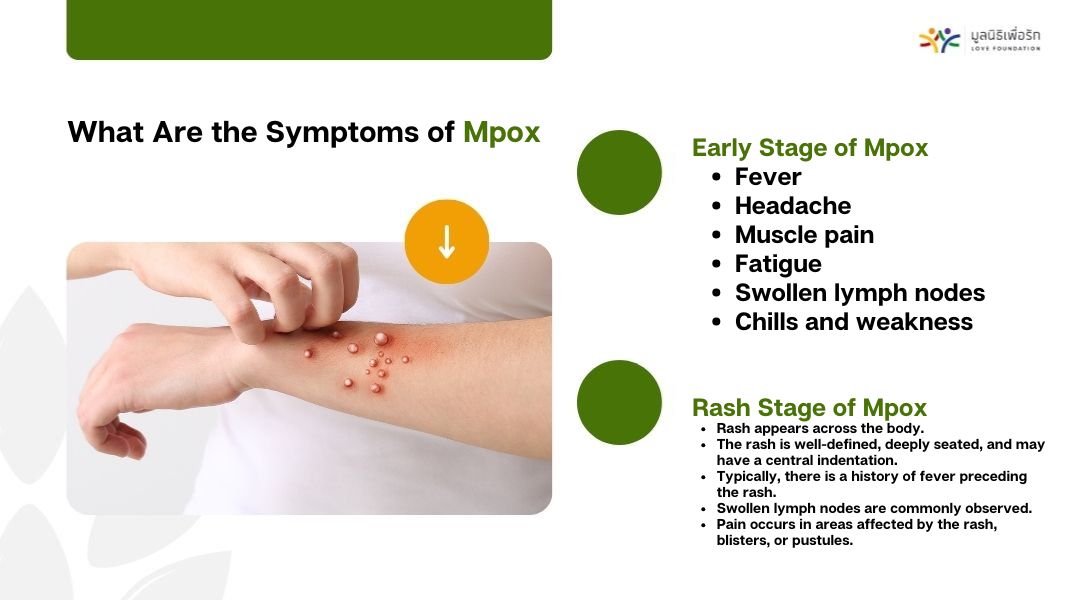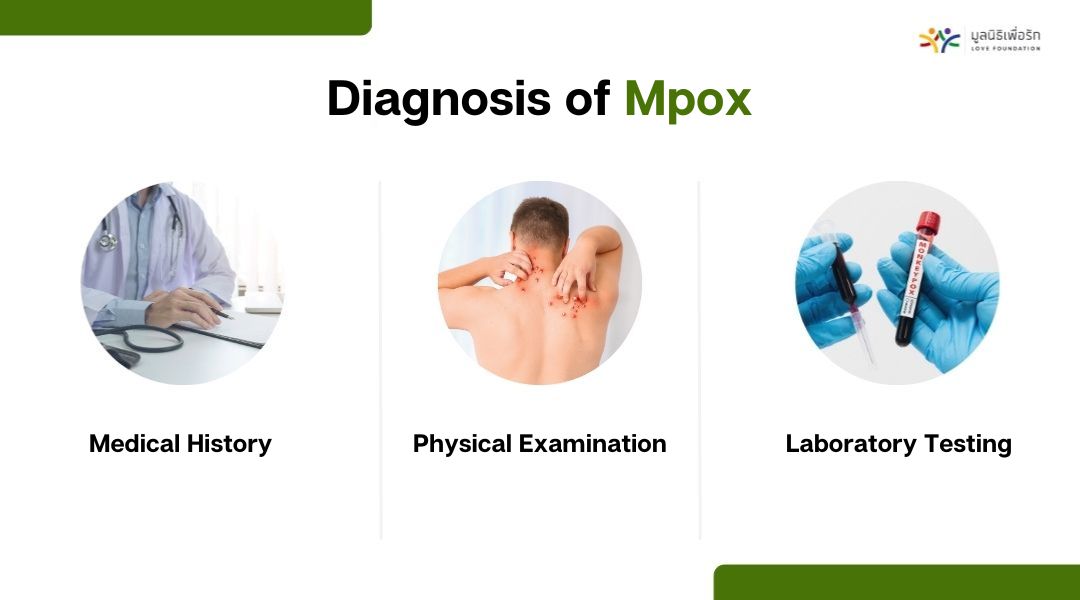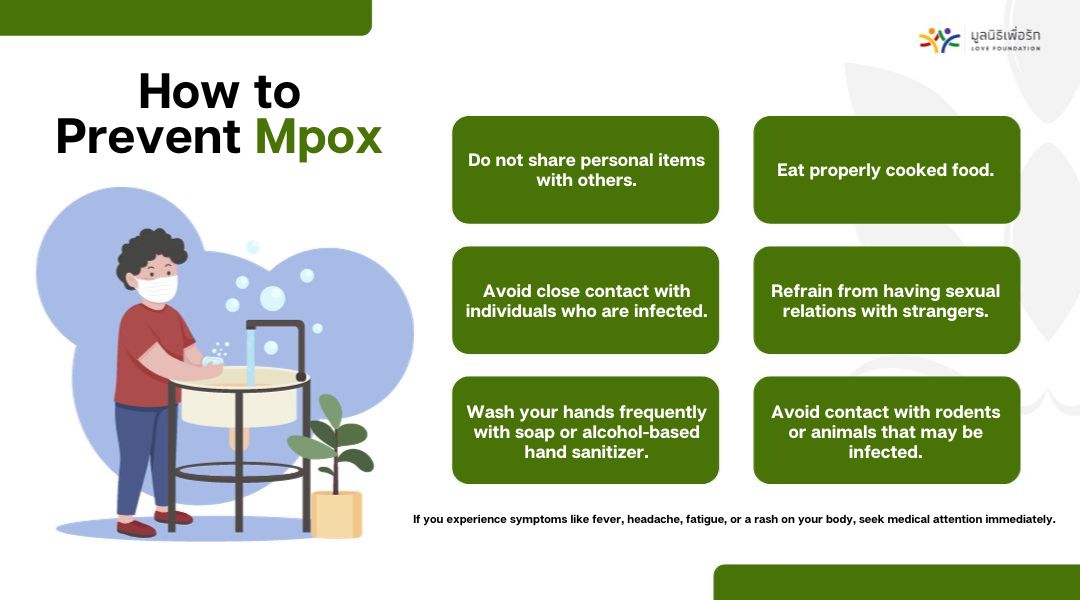What Causes Mpox?
Mpox is caused by a virus from the Orthopoxvirus group. It is a zoonotic disease, meaning it can be transmitted from animals to humans. Transmission can occur through direct contact with infected animals, consuming undercooked meat from infected animals, or coming into contact with bodily fluids such as saliva, blood, or feces from infected animals. Common carriers of the virus include rodents like monkeys, rats, squirrels, and rabbits.
The disease can also spread from person to person through close contact. This includes engaging in sexual activity with an infected individual, exposure to bodily fluids, touching lesions or blisters on the skin, or handling objects contaminated with the virus.
Incubation Period
After being exposed to the Mpox virus, symptoms typically appear within 5 to 21 days.
What Are the Symptoms of Mpox?

Mpox symptoms are divided into two stages
Early Stage of Mpox
- Fever
- Headache
- Muscle pain
- Fatigue
- Swollen lymph nodes
- Chills and weakness
Patients can transmit the virus from the onset of fever, although transmission during this stage is relatively rare.
Rash Stage of Mpox
- Rash appears across the body.
- The rash is well-defined, deeply seated, and may have a central indentation.
- Typically, there is a history of fever preceding the rash.
- Swollen lymph nodes are commonly observed.
- Pain occurs in areas affected by the rash, blisters, or pustules.
How Is Mpox Transmitted?
From Animals to Humans
Monkeypox can be transmitted from infected animals to humans through direct contact with blood, bodily fluids, or pus-filled lesions of the animal. It may also occur through bites or scratches from infected animals or by consuming undercooked meat from infected animals.
From Humans to Humans
Human-to-human transmission occurs through close contact with an infected individual. This includes engaging in sexual activity with someone who has the infection, touching lesions or blisters on the skin, or coming into contact with bodily fluids from an infected person.
Diagnosis of Mpox

Diagnosing Monkeypox involves several steps
- Medical History: The healthcare provider will inquire about the patient’s symptoms, travel history, and any contact with potentially infected animals or individuals.
- Physical Examination: The patient will be examined for the characteristics of the rash or lesions.
- Laboratory Testing: Samples from skin lesions or blood are collected to test for the genetic material of the virus.
A positive result from the genetic material test confirms an Monkeypox infection.
Complications of Monkeypox
The most common complication of Monkeypox is a bacterial infection in the lesions. This can lead to inflammation and swelling of the lesions, accompanied by symptoms such as fever, pain, redness, and pus discharge from the affected areas.
Severe complications of Mpox include pneumonia, encephalitis (brain inflammation), and bloodstream infections (sepsis). These complications are more likely to occur in individuals with weakened immune systems, such as those living with HIV/AIDS or cancer patients.
How to Prevent Mpox

- Do not share personal items with others.
- Eat properly cooked food.
- Avoid close contact with individuals who are infected.
- Refrain from having sexual relations with strangers.
- Wash your hands frequently with soap or alcohol-based hand sanitizer.
- Avoid contact with rodents or animals that may be infected.
- If you experience symptoms like fever, headache, fatigue, or a rash on your body, seek medical attention immediately.
Treatment of Mpox
Currently, there is no specific treatment for Monkeypox. Treatment mainly focuses on supportive care to manage symptoms. There are no standard medications specifically for Mpox, but some antiviral drugs can help alleviate symptoms, such as:
- Tecovirimat
- Cidofovir
- Brincidofovir
These medications may help reduce the severity of the infection and speed up recovery, but they are not a cure for the virus.
refer : Department of Disease Control, Ministry of Public Health.
Mpox is a disease that can be transmitted from animals to humans and can also spread from person to person. Therefore, it is important to always be cautious and protect yourself. Regular handwashing, avoiding contact with primates and rodents, refraining from sexual activity with strangers, and closely monitoring any early symptoms such as fever, headache, muscle pain, fatigue, and rashes are essential. If you experience any of these symptoms, it is important to see a doctor immediately.



